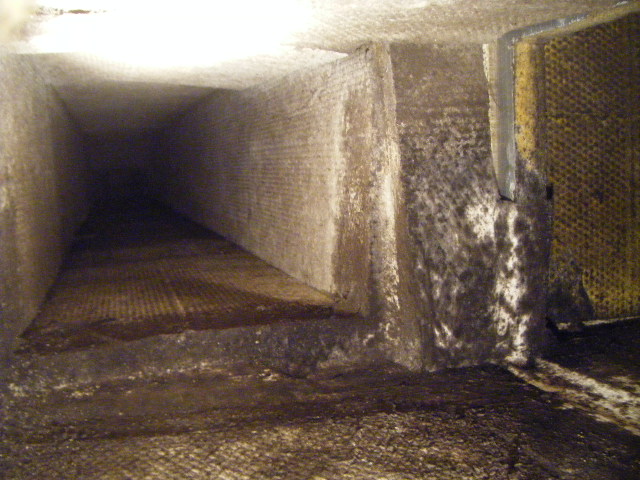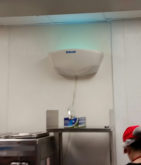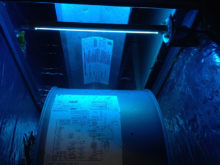
Mold. We all know it poses a huge health risk if we are exposed to it ; especially if that exposure is prolonged. Most believe that if they don’t see it, there is no risk. However, this is not true. Mold, like many germs and bacteria, is everywhere in trace amounts. If there is moisture and oxygen available, mold is probably present – especially if there is also humidity, which our climate here in the deep south is definitely not void of year round.
Mold is an inescapable pest. No worries.. that shouldn’t scare you into running to your doctor to get checked out. Unless you are experiencing frequent headaches, chronic respiratory infections, asthma or increased asthmatic episodes, nose bleeds, or chest tightness, you likely have not been exposed to enough mold to bring harm to your health. However, according to the US Environmental Protection Agency, indoor air can be up to 5 times more polluted than outdoor, with some pollutants measuring at amounts as much as 100 times greater than in outdoor air. Indoor air is filled with biotoxins that cause CIRS (Chronic Inflammatory Response Syndrome). According to medical research, 1 in 4 people lack the immune capability to fight off mold and biotoxins, which means they are at extreme risk of developing CIRS. (https://chriskresser.com/5-things-you-should-know-about-toxic-mold-illness/ ) So, why take the risk?
HVAC systems are common breeding grounds for mold colonies. Air conditioners, with all the condensation that goes everywhere from the coils to the ventilation ducts are not only breeding grounds, but one of the biggest means of spreading mold and harmful allergens throughout your home. How do you know if there is mold in your AC system? If you smell a musty mildew-like smell, chances are very good that you are being exposed. No.. You don’t have to go and sweat to death with the AC off for fear of this musty-smelling silent killer. There are ways to minimize the spread of mold spores and vastly improve your indoor air quality.
One of the most effective solutions is to install a UV light where your system is. UV radiation may be harmful for your eyes, but it is a major component of sunlight for a reason. UV rays are a natural way to kill harmful pathogens in the outdoor air. Ultraviolet light has also been used in restaurant kitchens, hospitals, and many other places as a means of killing airborne bacteria, mold, and pathogens in sterile environments. It is also useful in eliminating mold in places it tends to build up on HVAC units (such as the coils, ducts, and condensation drain pans). UV-C technology also has several benefits aside from improving indoor air quality. Using UV lighting can also lead to saving on energy bills as it prevents mold buildup from affecting the efficiency and airflow of your unit, meaning it runs less and uses less electricity.
 (UV light in Restaurant kitchen)
(UV light in Restaurant kitchen)
 (UV light inside AC system)
(UV light inside AC system)
We offer special solutions for air purificaton such as the Bulldog Pro Max. The BPM is a UVC germicidal light that treats the air flowing through your ducts, helping to cut down on allergens, pollutants, and odors. The 2 bands of UV-C light and special photocatalyst operate on the molecular level by channeling the air moving through your ducts through an oxidation chamber where harmful airborne pollutants are exposed to a lethal dose of UV-C light. From there, the dead microorganisms break down and become harmless and odorless components. With the constant circulation of indoor air via the HVAC system, the Bulldog Pro Max guarantees that you will always be able to breathe with ease and peace of mind.
Another professional solution is to have your air ducts cleaned and insulated. Cleaning removes existing mold while insulation will cut down on the amount of condensation that develops on and in your duct system. There are also other things you can do on your own to help breathe a bit easier. Running a dehumidifier in the areas of your house that are damp and humid, such as basements, closets, and bedrooms will take the moisture that mold needs to thrive out of the air. Changing your air filter regularly will also help, since it improves airflow to and from the system, helping it run efficiently and keeping excessive running from building up more condensation. Filters are also designed to catch some of the harmful spores from the air as the intake register draws in the humid and temperate air from your home to pump out.
If you have any questions or concerns about mold in your HVAC system or you would like for us to help you improve your air quality, we would be more than happy to help you, as we truly care for our community and the health and well-being of our customers. Give us a call at (864)-578-7575 or message us through our website, facebook, twitter, or right here on this blog! You can also visit our website to learn more about our Indoor Pollution Solutions. Here’s the link: https://www.boilingspringshvac.com/indoor-air-quality